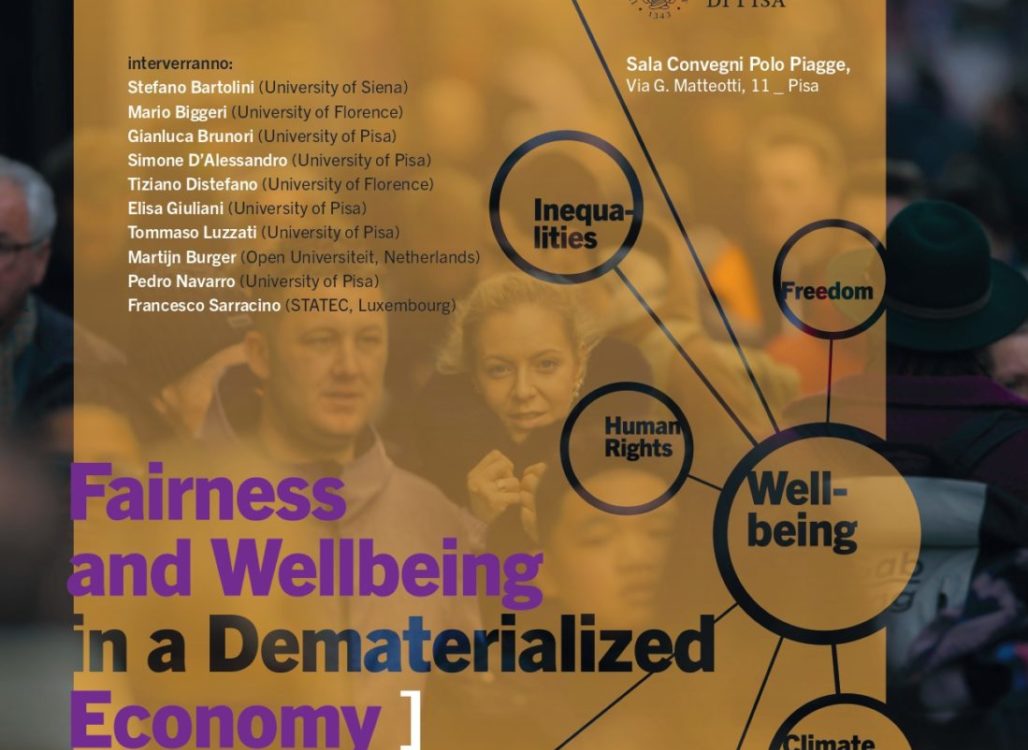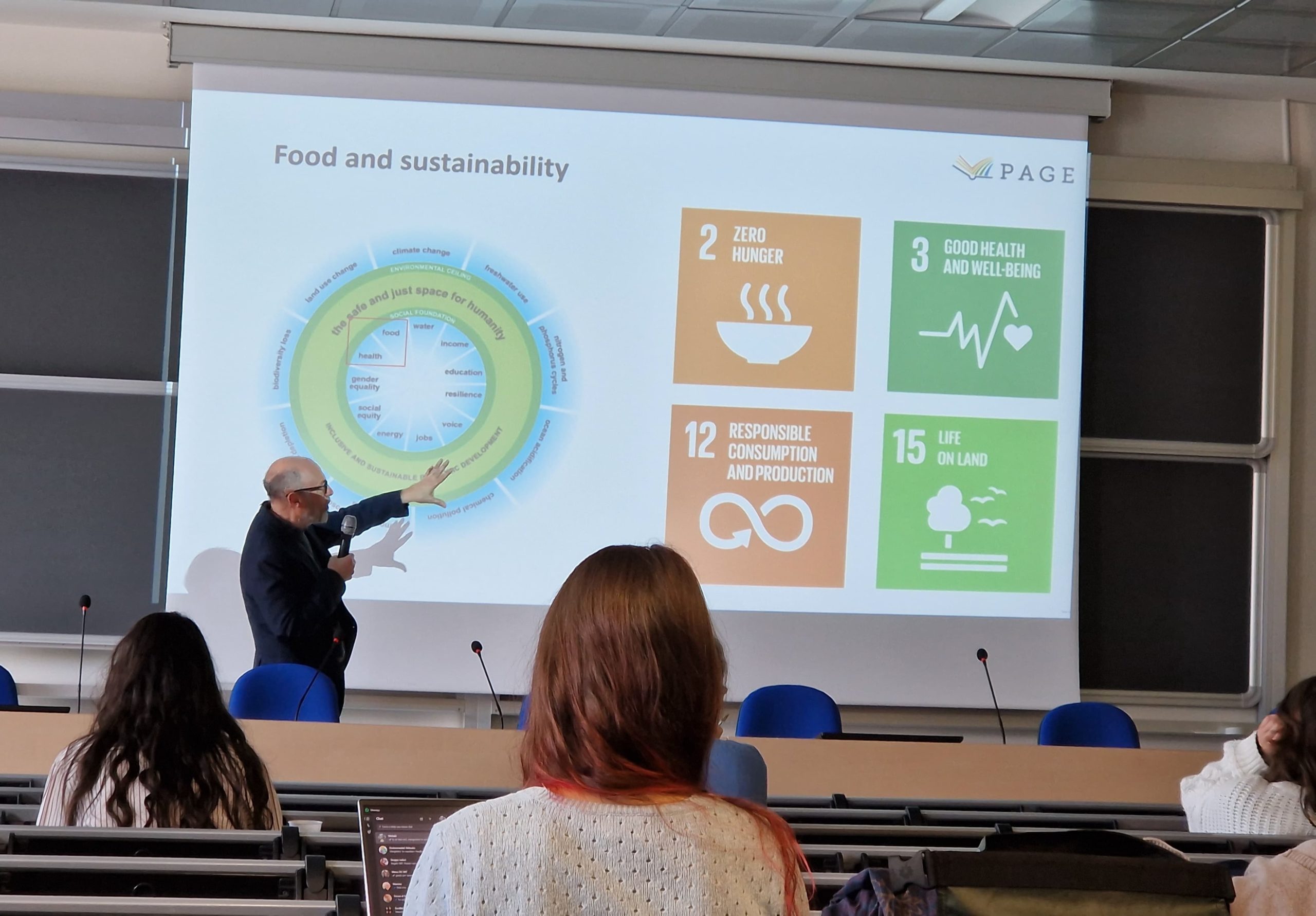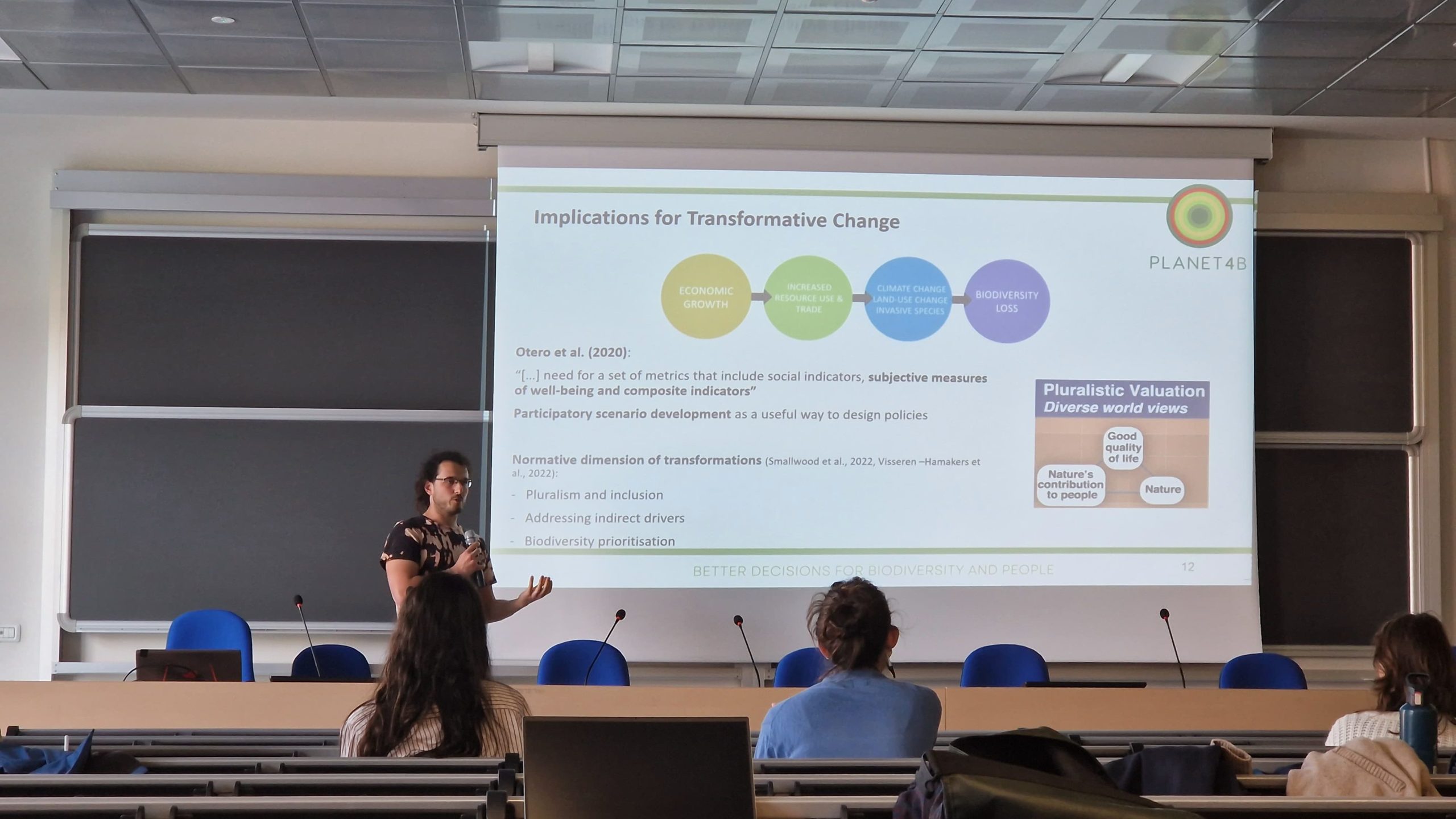
PAGE researchers participate in the WIDE-ARC seminar “Fairness and Wellbeing in a Dematerialised Economy”
Author: Pedro Navarro Gambín
On the 5th of April, Prof. Gianluca Brunori and Pedro Navarro Gambín, from Pisa Agricultural Economics (PAGE), participated as invited speakers in the seminar “Fairness and Wellbeing in a Dematerialised Economy”. The event, which took place at the Polo Piagge of the University of Pisa, was organised in the context of the “Wellbeing in a Dematerialized Economy: An RRI Concept” (WIDE-ARC) project. Apart from our two representatives, nine more speakers brought their valuable insights into a discussion which turned around the question: “How do we transform our economies to make them sustainable in a society that grants wellbeing and equality to everyone?”.
Prof. Simone D’Alessandro, who organised the event and acted as facilitator, introduced the topic by arguing that the abundant evidence about the direct connection between economic growth and environmental degradation highlights the need for reducing material use in our economy, i.e., the need for a ‘’dematerialised economy”. However, a transition towards such an economy involves several social risks (e.g., social unrest, inequalities), therefore there is a need for eco-policies that improve wellbeing.

Prof. Gianluca Brunori’s presentation addressed the connection between nutrition and wellbeing. He presented the sustainable food system framework using evidence from PAGE’s research projects, and talked about the different dimensions of malnutrition, how people’s behaviour is affected by their food environments. Moreover, he speaks about meat consumption and discussed the dynamics and challenges of the transition towards a sustainable food system (e.g., omnivorous vs locavore, top-down vs bottom-up approaches, the role of niche social innovations in changing the broader regime, etc). In the Q&A time, there was a discussion about the role of organic agriculture within an industrial agricultural system.
Later, Pedro Navarro Gambín presented the ongoing PLANET4B project and PAGE’s case study about the transformations of the Textile, Apparel, and Fashion sector (TAF) to better prioritise biodiversity in decision-making. Apart from explaining the connection between TAF activities and biodiversity loss, he explained the connection between the topic and a necessary change in the current paradigm of economic growth and the ‘fast fashion’ business model. He finally discussed the subjective dimension of wellbeing and quality of life in fashion, and some implications for a transition towards an economy focused on meeting people’s needs rather than satisfying consumer preferences.

Apart from PAGE’s researchers, the morning session started with the presentation of Prof. Elisa Giuliani (University of Pisa), who explained the problematic connection between businesses’ international supply chains and human rights violations, and proposed a change in business models and more transparency in supply chains as policy options. Then, Prof. Mario Biggeri (University of Florence) explained the ‘capabilities approach’ to human development, and discussed some of its implications for policy. Later, Tiziano Distefano (University of Florence) discussed the importance of water from an economic point of view and explained how multi-scale modelization could contribute to promote a socio-ecological transition of water management. Prof. Tommaso Luzzati introduced the origins and basis of ecological economics as a discipline, discussed the role of obsolescence and ‘uneconomic growth’ in a ‘throwaway economy’, and problematised the issue of the costs of the ecological transition. Finally, Prof. Martijn Burger problematised the usefulness of the current narratives of climate policy with evidence from the Netherlands, and highlighted the importance of ‘hope’ within a necessary new narrative that appeals people to act.
In the afternoon, Läetitia Dillenseger (University of Strasbourg) explained how happiness fuels pro-environmental actions, and environmental actions enhance happiness. Later, Prof. Stefano Bartolini (University of Siena) explored the connections between happiness and the ecological transition by discussing the problematic relation between meaningful human relationships (i.e., social capital) and economic growth. He argued that money fits the space of relationships after the commodification of common goods and advocated for policies aimed at re-constructing those relationships as part of the ecological transition. Finally, Prof. Francesco Sarracino (National Institute of Statistics and Economic Studies of Luxembourg), in a similar presentation, introduced what he called a ‘neo-humanist’ path to post-growth societies, in which people’s wellbeing is positioned at the centre of decision making.
As a final remark, the seminar was held as a side event of the forthcoming Beyond Growth Conference Italia 2024 (Rome, April 19-20), which will bring this discussion to the Italian Parliament. Some members of the PAGE group will attend the Conference. In the following weeks, we will publish a summary and reflection of the main discussion points.

